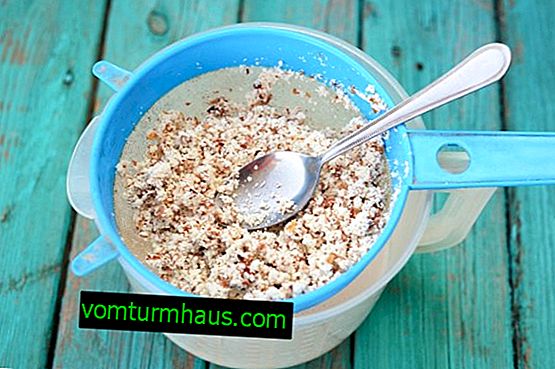Duck life span
The question of the life expectancy of ducks is rather of interest to naturalists studying the behavior of these birds in the wild. However, domesticated birds are no less interesting in this regard, since the older the bird becomes, the less productivity it will differ. To determine the possible age limits for wild and agricultural ducks, we suggest that you familiarize yourself with the following information.
Domestic duck averages
Under good conditions of keeping and feeding, domestic ducks may well live up to 15 years, but it is unlikely that someone will keep birds that are bred for the purpose of obtaining eggs or meat for so long. At the same time, each direction has its own optimal slaughter terms.

Egg-laying
Most representatives of egg breeds reach their maximum productivity by two to three years. Over the next few years, they still maintain good performance, but closer to 5-6 years, egg production still decreases. That is why birds often live to this age, or until the owner considers the duck unsuitable (sometimes this happens before the age of six).
Did you know? During the hunt, wild ducks calmly dive to a depth of 5-6 meters, trying to get their prey.
Also, one should not exclude the possibility of death of an individual from diseases and parasite activity: as a result of epidemics, most of the feathered inhabitants of the compound can die.
Meat
For meat ducks, life expectancy on average is no more than 2.5 - 3 months, that is, exactly as much as is needed to gain optimal muscle mass. Further maintenance of the bird is an economically disadvantageous occupation, since it will eat more than gain weight.

Meat and egg
How long the representative of the meat and egg direction lives will depend on what qualities are more developed. So, if a duck quickly gains weight, but does not give out the expected number of eggs, then it can be put on meat much faster than relatives, characterized by higher rates of egg production. On average, the life span of meat and egg birds is not more than 4 - 5 years.
Are there differences between different breeds
The life expectancy of poultry depends on the breed only if it is considered from the point of view of productive orientation. It is logical that the White Moscow, Beijing and Indoutki live less than their more productive "egg" relatives - Indian runners.

Important! Each breed needs its own living conditions, therefore, if you want to achieve the declared productivity from a bird, it is better to familiarize yourself with all its “vagaries” in advance.
What factors affect life expectancy
The life span of a particular duck is determined by a whole set of factors, and if predators and hunters are scary for a wild bird, then domestic dangers face other dangers.
Most breeds bred by crossing the most diverse representatives of this group have their own special characteristics that require increased attention from the poultry breeder, so when breeding egg, meat, egg and meat ducks, it is important to pay attention to the following nuances of their content:
- the house should always be clean and dry;
- the flow of fresh air should be provided using an appropriate ventilation system, without the slightest drafts;
- the density of the poultry should not exceed three individuals per 1 square. m area;
- if possible, it is better to place the house on a hill so that rodents cannot reach its inhabitants (although in any case it is better to keep this issue under control, so that when the slightest problems arise, take appropriate measures in time - set traps or scatter the poison);
- the temperature inside the house should not fall below + 1 ... + 5 ° C;
- in addition to the warm room, the birds need to organize a walking yard with a small place for swimming, otherwise the bird will quickly become fat (the walking area should correspond to the number of ducks, so that no less than 1–1.5 square meters per individual);
- access to dry food and water should be around the clock.

How many mallard ducks live
Despite the predators and human activities, in the wild, ducks are more likely to live a long and happy life than their domestic relatives. In history, there are cases when the same mallard was observed for 20 years, even if this is the exception rather than the rule. Mallards are long-livers of the wild duck world and live on average about 12–14 years, while representatives of other wild species cannot overcome the milestone of 2-3 years.




